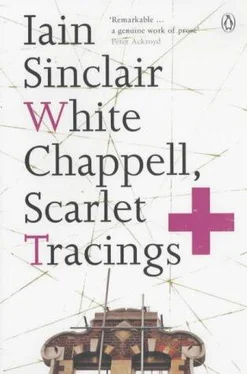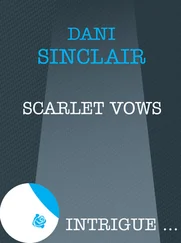Gold salts on his porridge. The pore sweats. The chamber-pot removed, the stool examined. To turn light to base matter. The flesh made word. The golden homunculus steams. The worm. But the excrement is pure. The excitement is dry. He puts powder to his nose. It is odourless. The creature himself stiffens, a volume of letters on the table, runs his fine hand against his cheek. Rooms bright with ornaments and pictures. Is become an exhibit again: a sun statue dying in autumn windows.
Merrick was destroyed by his deliverance, taken in out of his own distress and panic, rescued; he became a footnote in the myth of Treves. He was the animal part. His own energy withdrawn and stripped. He was the exhibition of Treves’ sanctity, he changed his impresario from the Silver King to the Surgeon. He was secured. He came in off the road.
He willingly abandoned himself, his unborn self, to the sensationalisation of his history. The victim drew the hand of the author over the paper: his mouth spilled, he choked on darkness.
Treves worked with surgical precision; cut away all extraneous dialogue, local colour, architecture, weather. Merrick was the nerve of all this: and it was at the cost of his own existence.
He could not be forgotten. He was umbilically attached to his creator. Uninstructed, the Golem, like one mad, began running about in the Jewish quarter of the city, threatening to destroy everything.
He was the missing chapter of Edwin Drood; but Dickens shied back from a deformity that he might have shaded but could not quite turn to sentiment. There was a clairvoyance of ugliness that frightened him. The sideshow freak becomes Presence. And what had been his life was left to enter the stones, to move away among dim tree heights, to describe the rim of the missing church of Mary Matfellon. A taint in the colour of the hops.
He sat where he had sat before. And now there was no temperature; no veil over the nakedness of his face.
As we approach the glass cabinet we walk into his skeleton. The cabinet is set at an angle in the most obtuse corner. A phrase is present, not spoken by any of us, left in the room: ‘ inside it always smells like rotten marble ’.
Climbing towards this secret room, by steps, winding into the vermiform appendix of the caecum. Forbidden steps, at hieratic distance, enlarging our stride.
As we approach the skeleton cabinet, we approach our darker selves. Joblard’s meat outline is imposed on the twisted bone armature. My face stares out from the skull cast, taking on an inherent mongolism of dim oils. A caul of opaque skin hides me from the light. The bones on Joblard’s suit are aboriginal lime. The Elephant Man’s peaked bee-keeping hat, his net, keep out the angry eyes. His collapse at Liverpool Street Station, steam cathedral, walkways, girders, high forests, hat torn from him, the weight of oppressive Great Eastern Masonry.
Bury the bell! Flinching. On this site: the Bedlam yelps, the cages of straw.
He is rescued. A portrait of himself. A specimen. Joseph Merrick, Pope. The church model upon his hand. Entering the tarot of blasphemy. Rioting bone coral. The hat. The church in all its detail.
The glass is a mirror.
So the circuit is completed: the eyes of the audience are brought to this place to look into themselves, to look out, from the painted shadow of what a man was, to the three dark shapes crossing the floor to join with him, in one unbroken moment.
Across the generous boulevard, Whitechapel Road, and into the Blind Beggar; stopped down, thirsty. We are looked over and ignored. There’s a few of the chaps in from Brady Street, so the Brick Lane mob stay clear. But we are only amateurs of ullage, don’t count: drink up, move on. No claim to any territory. ‘Arright, John?’
The chaps are talking overtime, but make it look like a bank job. Hunched in dynamic tension, not a casual hair, water slicked. Knees that don’t fit under tables. The light is stained, the street drifts back, snatches of warm breath.
‘Hinton, for me, is the key figure. The whirlwind, energising principle. He puts it all up in the air. But he’s crazy, he’s out of himself. He erodes his boundaries; he spills. And it’s up to others to interpret his work, to take it on and carry it through.’
Joblard is used to these uninvited monologues; they are fed into his well-earthed intelligence. He doesn’t have to reply to them; he returns some fragments of his own, precise and accurate tales, seemingly unconnected, but burning the time until it is gone, the poison absorbed. He has the gift of turning nouns into verbs. He makes them move .
‘Did you ever read Hinton’s son, Howard? What is the Fourth Dimension? Published 1887, of course. It was all there, all coming to the boil. Howard was completing one aspect of his father’s work.
‘James Hinton says, “Will my friends try after I am dead, for I cannot do it myself…” He says, “It was too much for my brain, but it is by the failure of some that others succeed…”
‘He says, “Either I had a second self, who transacted business in my likeness, or else my body was at times possessed by a spirit over which it had no control, and of whose actions my soul was wholly unconscious.”
‘He left the harpoon on the table. He forced other men to take it up. It’s that mad, self-heated excitement that connects with the real but cannot translate it into action. No action would be enough. It was gone when he said it. He saw the contrary. He cancelled himself.
‘But Howard, the son, hooked onto just one part of Hinton’s pitch, the acts of time. He described a model system of lines, nearly upright, sloping in different directions, connected to a rigid framework. He proposed that this framework be passed through a horizontal fluid plane which stretched at right angles to the direction of the motion. There would be the appearance of a multitude of moving points in the plane, equal in number to the straight lines in the system.
‘We have got to imagine some stupendous whole wherein all that has ever come into being or will come co-exists , which, passing slowly on, leaves in this flickering consciousness of ours, limited to a narrow space and a single moment, a tumultuous record of changes and vicissitudes that are but to us.
‘So it’s all there in the breath of the stones. There is a geology of time! We can take the bricks into our hands: as we grasp them, we enter it. The dead moment only exists as we live it now. No shadows across the landscape of the past — we have the past, we have what is coming; we arrive at what was, and we make it now.
‘We give ourselves up, let go, stalk up on ourselves unawares. We walk into our own outlines; we are there before. Howard is become his own father.
‘He articulated his father’s uncompleted argument. We service the dead. Without him a piece of the father would have disappeared for ever.
‘You can’t get off that curve. It’s like old Dick Brandon. The family eating their breakfast in a back-kitchen at Bow are already dead, the Peenemunde rocket launched from German scrublands. The patriarchs are scattered on the roof; it is with them as they go about their business, it is lead in the skirts of their coats. They might as well take a ladder, climb onto the parapet and wait for their death.
‘Until we can remake the past, go into it, change what is now, cut out those cancers — we are helpless. We are prisoners, giving birth to old faults, carrying our naked grandfathers in our arms.
‘What Hinton said, Gull did. Hinton claimed, “Prostitution is dead. I have slain it. I am the Saviour of Women.” But it was Gull who took the hansom-cab as a time module: one of Howard’s diagrams made actual. He floated in a solution of time, lifted above the horizontal plane, out of it, not that crudity of arriving, not anywhere; realising, embodying, all those potential moments of will.
Читать дальше












